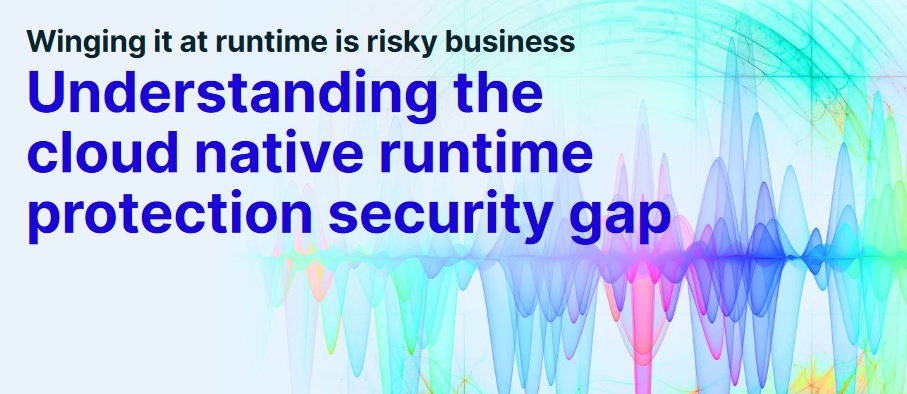Red Hat and Elastic announced an expanded collaboration to deliver next-generation search experiences supporting retrieval augmented generation (RAG) patterns using Elasticsearch as a preferred vector database solution integrated on Red Hat OpenShift AI.
Only 3% of respondents recognize that a container, in and of itself, is not a security boundary, indicating that the default security capabilities of containers are overestimated, according to the 2021 Cloud Native Security Survey from Aqua Security.
This result is especially alarming in conjunction with the fact that only 24% of respondents have plans in place to deploy the necessary building blocks for runtime security.

"The results of the survey showcase a staggering knowledge gap that leads to an underinvestment in a critical part of full lifecycle, end-to-end security for cloud native applications," said Amir Jerbi, co-founder and CTO at Aqua. "When practitioners fail to implement a holistic approach with protecting their workloads at runtime, they are opening up their environments to attackers, since even the most complete ‘shift left’ vulnerability and malware detection cannot prevent zero-day attacks and administrator errors."
The report demonstrates the difficulty and complexity of understanding key cloud native security risks, along with how to counteract them. Despite recent reports showing the increased sophistication of cloud native attacks, only 18% of respondents realize they are at risk for zero days in containerized environments.
Confidence vs. Reality
While 32% of respondents were confident in overall holistic runtime security protection, detailed questions revealed that less than 23% of respondents in fact had the necessary building blocks of runtime security in place.
Supply Chain Risk
A knowledge gap around workload protection has led to a striking number of practitioners who believe they are protected from supply chain attacks in production, but in fact are not. While 73% believed that they could stop software supply chain attacks evading static analysis, there was an apparent misconception about the role of runtime security in achieving this protection.
"There is a concerning overconfidence in the perceived ability to prevent supply chain attacks. The reality is that runtime security is essential because sophisticated supply chain attacks evade static analysis. We see unnamed attackers use legitimate vanilla images to download malicious elements at runtime, Kinsing malware that only downloads in runtime, and attackers like Team TNT who hide their malicious communications attacking our honeypots on daily basis," said Jerbi.
Increasing Container Threats
In a recent threat report, Aqua found that attackers are becoming more proficient at hiding their methods and evading static scanning, while threats to container based environments have become more dangerous and more varied. Over a six-month period, Aqua observed honeypots being attacked 17,358 times, representing a 26% increase from just six months previously. The increasing volume of attacks demonstrates the importance of implementing holistic cloud native security, including runtime protection, in order to protect against attackers who have evaded detection and have access to the production environment.
"Holistic cloud native security should be every practitioner’s goal. It is not just about runtime security or any other one focus area. It is about ensuring the entire application life cycle is covered, from the build to the infrastructure and the workloads," said Jerbi.
Methodology: The study surveyed 150 cloud native security practitioners and executives from IT, Security and DevOps teams, across sectors including financial services, technology, healthcare and pharma, industrials, and retail among others. Participants were from the United States, Canada, United Kingdom, Germany, Australia and India.
Industry News
Traceable AI announced an Early Access Program for its new Generative AI API Security capabilities.
StackHawk announced a new integration with Microsoft Defender for Cloud to help organizations build software more securely.
MacStadium announced that it has obtained Cloud Security Alliance (CSA) Security, Trust & Assurance Registry (STAR) Level 1, meaning that MacStadium has publicly documented its compliance with CSA’s Cloud Controls Matrix (CCM), and that it joined the Cloud Security Alliance (CSA), the world’s leading organization dedicated to defining and raising awareness of best practices to help ensure a secure cloud computing environment.
The Cloud Native Computing Foundation® (CNCF®) released the two-day schedule for CloudNativeSecurityCon North America 2024 happening in Seattle, Washington from June 26-27, 2024.
Sumo Logic announced new AI and security analytics capabilities that allow security and development teams to align around a single source of truth and collect and act on data insights more quickly.
Red Hat is announcing an optional additional 12-month EUS term for OpenShift 4.14 and subsequent even-numbered Red Hat OpenShift releases in the 4.x series.
HAProxy Technologies announced the launch of HAProxy Enterprise 2.9.
ArmorCode announced the general availability of AI Correlation in the ArmorCode ASPM Platform.
Octopus Deploy launched new features to help simplify Kubernetes CD at scale for enterprises.
Cequence announced multiple ML-powered advancements to its Unified API Protection (UAP) platform.
Oracle announced plans for Oracle Code Assist, an AI code companion, to help developers boost velocity and enhance code consistency.
New Relic launched Secure Developer Alliance.
Dynatrace is enhancing its platform with new Kubernetes Security Posture Management (KSPM) capabilities for observability-driven security, configuration, and compliance monitoring.
Red Hat announced advances in Red Hat OpenShift AI, an open hybrid artificial intelligence (AI) and machine learning (ML) platform built on Red Hat OpenShift that enables enterprises to create and deliver AI-enabled applications at scale across hybrid clouds.




